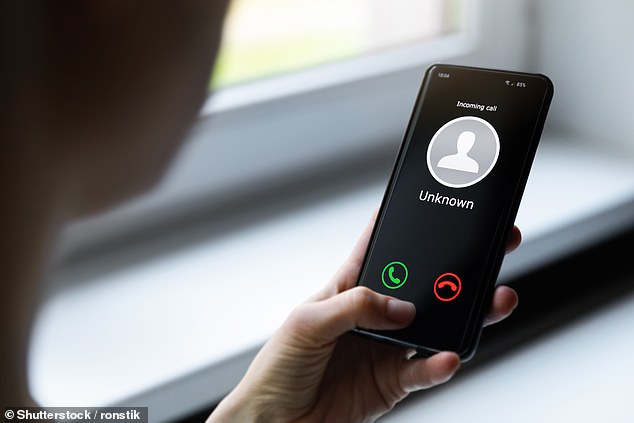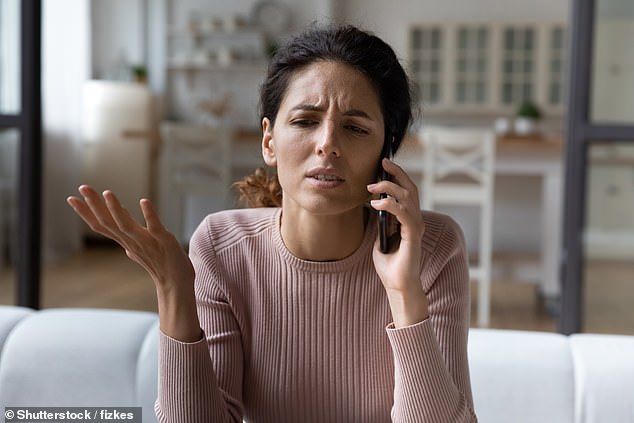Young woman’s $2,500 mistake on the phone: ‘Please be careful’
A young woman has exposed the warning signs she missed after falling victim to a scammer and losing more than $2,500 over the phone.
Taylor Maree, who lives in Brisbane, lost the amount after a man called her on June 6 from an unknown number claiming to be from Virgin Money.
Virgin Money provides financial services including home loans, credit cards and pensions and is owned by the Bank of Queensland Group.
Ms Maree, who shared her experiences on TikToksaid the man claimed fraudulent activity had been detected on her account.
“He says, ‘I’m not going to ask you for your personal information, I just need to confirm that these transactions are yours,'” she said.
Brisbane resident Taylor Maree (pictured) lost as much as $2,500 after a man called her on an unknown number on June 6 claiming to be from Virgin Money
The man began listing various expenses, claiming an $800 purchase was made on Amazon and $1,600 on an unknown website.
She told the man that she had not made any of these purchases before he replied that he would immediately reverse them.
He said he would text her a one-time passcode and asked if she could read it to him.
“He texts me and it turns out it’s from the same number I get my Virgin Money details through,” Ms Maree said.
Unaware that the man was not who he claimed he was, Ms Maree read the PIN before realizing she had just lost thousands of dollars.
‘I re-read the message and it said: “This is to complete the transaction of 1,661 British pounds”.
Ms Maree immediately contacted her bank and was told her card had been canceled and all transactions on her account would be blocked.

The man sent Ms Maree a one-time PIN code in a text message which she read to him over the phone, with the code used by the scammer to steal the money (stock image)

Ms Maree urged people to be aware of the ‘red flags’ that they are being targeted by scammers (stock image)
She was told that it would take at least six to eight weeks before she would receive notice from the bank if her money was recovered.
Ms Maree was warned she may not get her money back when she read out the one-time PIN to the scammer.
She urged others to be aware of “red flags,” including calls made without caller ID.
“These scammers become so cunning in what they do and they get away with it,” Ms Maree said.
‘Please be very careful. If it is an unknown number, hang up and call the bank. I wish I had because now I wouldn’t worry so much about whether or not I’m going to get this money back.”
Her TikTok video was flooded with comments from hundreds of social media users sharing similar experiences.
“That’s really sad that I also got scammed the same way out of about $90,000,” one person wrote.
“I was scammed out of $50,000 [a] Payment to [an] energy supplier,” wrote another.
Others said people should be more vigilant as scammers use sophisticated methods to carry out their activities.
“Answering an unknown number is complete madness,” one person wrote.
“Never do a transaction where they call you… hang up and call the bank,” another person wrote.
Daily Mail Australia has contacted the Bank of Queensland for comment.

Aussies have been warned not to answer calls from an unknown number after several people shared their experiences of losing thousands of dollars (stock image)
Australian Competition and Consumer Commission (ACCC) deputy chair Catriona Lowe warned Aussies that scammers are using emails, phone calls and web-based pop-up messages to target people.
“Never download software or apps if someone asks you to do so over the phone and never share banking details, passwords or two-factor identification codes,” Ms Lowe said.
Australians lost more than $2.7 billion to scams in 2023, with 601,000 reported to the ACCC last year alone.
Text messages were the most common method used by scammers to target victims, while scam calls caused the largest financial loss worth $116 million.
